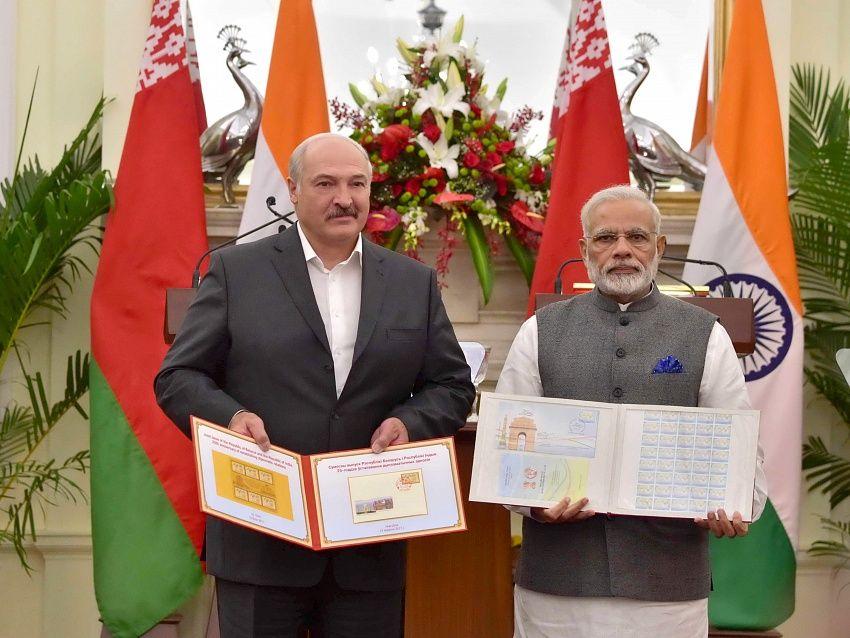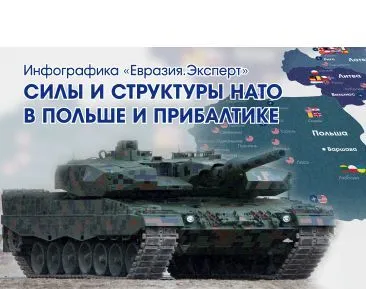Москва сделала геостратегический выбор поддерживать Минск.
India is ready to support Belarus' membership in SCO – Indian expert

On September, 12th, President of Belarus Alexander Lukashenko made his official visit to India. Numerous economic projects were announced after the meeting was over, however it is the military-technical cooperation that can become crucial for the two countries. Professor Jegan Naathan, Programme Coordinator of National Service Scheme (Central University of Jammu), thinks that India might support Belarus’ membership in SCO. However New-Delhi will ask for a favour in return. “Eurasia.Expert” interviewee predicts a measurable increase in trade between India and EAEU and talks about India’s alternative to China’s Belt and Road initiative.
- Mr. Naathan, a few days ago President of Belarus Alexander Lukashenko made an official visit to India. How important was it for India?
- There is no doubt that it’s a historical visit by the President of Belarus, Mr. Alexander Lukashenko, who has been given an overwhelming reception by the Government of India, which shows how important it is for India. This visit would take up their relationship to the next level of deepening the bilateral cooperation in areas such as defence and security, pharmaceuticals and energy. It is interesting to note that Belarus along with many other countries including Kazakhstan supported Pakistan’s position on a need for non-discriminatory criteria based approach for all Non-NPT states in the NSG membership.
In this context, this visit is significant for India to seek support from Belarus in favour of India’s membership to NSG. In return, Belarus may seek India’s support for its membership to SCO.
- What can you say about the military-technical cooperation between the two countries?
- The preliminary meeting revealed that both countries are planning to work closely on defense and security issues. India may look for investment in defence manufacturing by Minsk such as artillery shells and other armaments.
- The India-Belarus relations are developing within a broader context of Russia-China relations. China was a host for a recent BRICS summit. How successful is this organization developing?
- The outcome of the recent BRICS summit is positive and progressive. It sets a common agenda for the members as well as the observers in the realm of security and economy. For instance, reference to Lashkar-e-Taiba and other Pakistan-based terrorist organization in the declaration reaffirms India’s stand against terrorist organization in South Asia. The declaration also reiterates the Russian policy towards Syria by endorsing the ‘Syria-led, Syria-owned’ solution. China gained much by diffusing tensions/confrontation with India a week before the Summit, which had strengthened confidence among the members to resolve all the issues between them. Overall, the Summit succeeded in evolving a consensus among the members on varieties of issues.
- China is promoting its Belt and Road initiative. However this “New Silk Road” raised concerns in India. New-Delhi proposes its own transcontinental plan – North-South Transport Corridor. Is India creating its own Silk Road?
- India’s reservation over Belt and Road initiative is simple: it violates territorial integrity of India since much of its planned infrastructure development activities are happening along the disputed territory of Pakistan Occupied Jammu&Kashmir (PoJK), which raises India’s security concerns. As far as North-South Transport Corridor is concerned, it is multi-model transport network for moving freight between India, Russia, Oman and Central Asian countries. This would enhance connectivity between India and Central Asia and thus enables India to get access to Central Asian Energy resources. This project has bright prospects for two reasons.
First, it reduces transport costs drastically, which was evident from the recent dry run conducted in April 2017 (estimated spending – $2,500 per 15 tons of cargo). Second, it doesn’t run through politically volatile regions.
The recent study by the 'Federation of Freight Forwarders’ Associations in India (FFFAI) also found that the route is, “30 per cent cheaper and 40 per cent shorter than the existing traditional route”.
- Recently India and EAEU agreed to start talks on the creation of a free-trade zone. What opportunities will free trade with EAEU open to India?
- This initiative is in nascent stage and is yet to flourish to become a full-fledged institution. India’s FTA with EAEU would definitely enhance the trade potential to high level.
The current trade with the five members of the EAEU is around $8 billion to $11 billion. It is estimated that the bilateral trade between India and EAEU would increase five-times to $62 billion in a decade.
So there are plenty of opportunities in the field of IT and Pharmaceutical sectors.
- Recently India became a member of SCO. What new perspective does it provide to India?
- As global power centre is shifting towards east and the global economic crisis signals the decline of west dominate order, it’s imperative for India, as a largest democracy in Asia and emerging economy in the world, to join any multilateral framework organization that works for regional stability and global peace.
In that sense, India’s membership to SCO provides unfettered access to Central Asia and beyond, especially to get a greater access to major oil and natural gas exploration projects in the region in order to meet its growing energy demand due its accelerated economic growth. Moreover, it also provides a strategic balance with China, the arch competitor in Asia which dominates the SCO so far.


